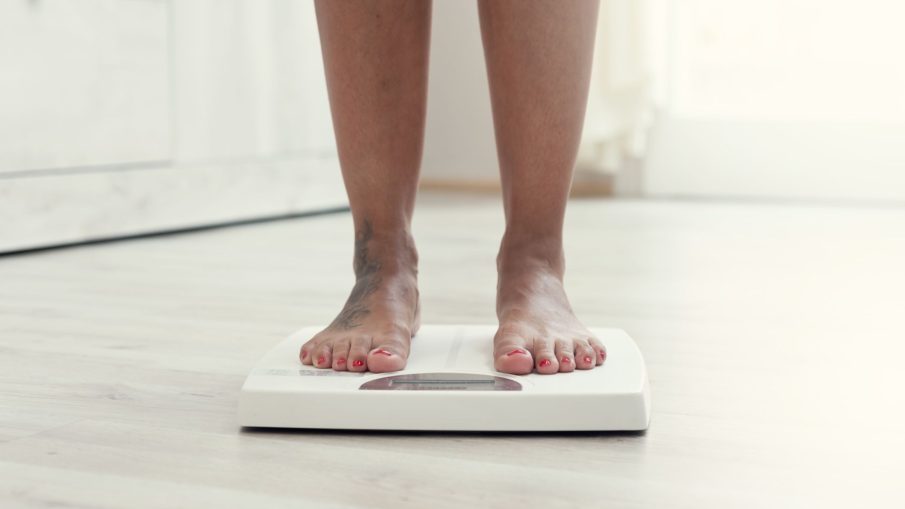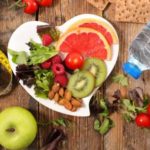Whether underweight or overweight, the consequences are negative either way according to studies. Unfortunately, our society is generally more concerned about obesity without giving much thought to those who’re underweight. Gaining weight is easy especially if you want to go the unhealthy route by consuming so many burgers, sodas and calories.
Frankly speaking, if you want to gain weight, it’s very important to do it right. These tips published on healthline.com, will show you how to gain weight the healthy way.
1) Eat More Calories Than Your Body Burns: The most important thing you can do to gain weight is to create a calorie surplus, meaning you eat more calories than your body needs. You can determine your calorie needs using this calorie calculator. If you want to gain weight slowly and steadily, aim for 300–500 calories more than you burn each day according to the calculator. If you want to gain weight fast, aim for around 700–1,000 calories above your maintenance level. Keep in mind that calorie calculators only provide estimates. Your needs may vary by several hundred calories per day, give or take. You don’t need to count calories for the rest of your life, but it helps to do it for the first few days or weeks to get a feel for how many calories you’re eating. There are many great tools out there to help you.
2) Eat Plenty of Protein: The single most important nutrient for gaining healthy weight is protein. Muscle is made of protein and without it most of those extra calories may end up as body fat. Studies show that during periods of overfeeding, a high-protein diet causes many of the extra calories to be turned into muscle. However, keep in mind that protein is a double-edged sword. It’s also highly filling, which may reduce your hunger and appetite significantly, making it harder to get in enough calories. If you’re trying to gain weight, aim for 0.7–1 grams of protein per pound of body weight (1.5–2.2 grams of protein per kilogram). You can even go above that if your calorie intake is very high. High-protein foods include meats, fish, eggs, many dairy products, legumes, nuts and others. Protein supplements like whey protein can also be useful if you struggle to get enough protein in your diet.
3) Fill up on Plenty of Carbs and Fat and Eat at Least 3 Times per Day: Many people try restricting either carbs or fat when trying to lose weight. This is a bad idea if your goal is to gain weight, as it will make it harder to get in enough calories. Eat plenty of high-carb and high-fat foods if weight gain is a priority for you. It is best to eat plenty of protein, fat and carbs at each meal. It is also a bad idea to do intermittent fasting. This is useful for weight loss and health improvement but can make it much harder to eat enough calories to gain weight. Make sure to eat at least three meals per day and try to add in energy-dense snacks whenever possible.
4) Eat Energy-Dense Foods and Use Sauces, Spices and Condiments: Again, it’s very important to eat mostly whole, single-ingredient foods. The problem is that these foods tend to be more filling than processed junk foods, making it harder to get in enough calories. Using plenty of spices, sauces and condiments can help with this. The tastier your food is, the easier it is to eat a lot of it. Also, try to emphasize energy-dense foods as much as possible. These are foods that contain many calories relative to their weight. Here are some energy-dense foods that are perfect for gaining weight:
- Nuts: Almonds, walnuts, macadamia nuts, peanuts, etc.
- Dried fruit: Raisins, dates, prunes and others.
- High-fat dairy: Whole milk, full-fat yogurt, cheese, cream.
- Fats and oils: Extra virgin olive oil and avocado oil.
- Grains: Whole grains like oats and brown rice.
- Meat: Chicken, beef, pork, lamb, etc. Choose fattier cuts.
- Tubers: Potatoes, sweet potatoes and yams.
- Dark chocolate, avocados, peanut butter, coconut milk, granola, trail mixes.
Many of these foods are very filling, and sometimes you may need to force yourself to keep eating even if you feel full.
It may be a good idea to avoid eating a ton of vegetables if gaining weight is a priority for you. It simply leaves less room for energy-dense foods.
Eating whole fruit is fine, but try to emphasize fruit that doesn’t require too much chewing, such as bananas.
5) Lift Heavy Weights and Improve Your Strength: To make sure that the excess calories go to your muscles instead of just your fat cells, it’s absolutely crucial to lift weights. Go to a gym and lift 2–4 times per week. Lift heavy and try to increase the weights and volume over time. If you’re completely out of shape or new to training, consider hiring a qualified personal trainer to help you get started. You may also want to consult with a doctor if you have skeletal problems or any medical issue. It’s probably best to take it easy on the cardio for now — focus mostly on the weights. Doing some cardio is fine to improve fitness and well-being, but don’t do so much that you end up burning all the additional calories you’re eating.
Others:
- Don’t drink water before meals. This can fill your stomach and make it harder to get in enough calories.
- Eat more often. Squeeze in an additional meal or snack whenever you can, such as before bed.
- Drink milk. Drinking whole milk to quench thirst is a simple way to get in more high-quality protein and calories.
- Try weight gainer shakes. If you’re really struggling then you can try weight gainer shakes. These are very high in protein, carbs and calories.
- Use bigger plates. Definitely use large plates if you’re trying to get in more calories, as smaller plates cause people to automatically eat less.
- Add cream to your coffee. This is a simple way to add in more calories.
- Take creatine. The muscle building supplement creatine monohydrate can help you gain a few pounds in muscle weight.
- Get quality sleep. Sleeping properly is very important for muscle growth.
- Eat your protein first and vegetables last. If you have a mix of foods on your plate, eat the calorie-dense and protein-rich foods first. Eat the vegetables last.
- Don’t smoke. Smokers tend to weigh less than non-smokers, and quitting smoking often leads to weight gain.
However you want to gain weight, it’s important that you do this in a healthy way. Don’t kill yourself because you want to put that weight on.



